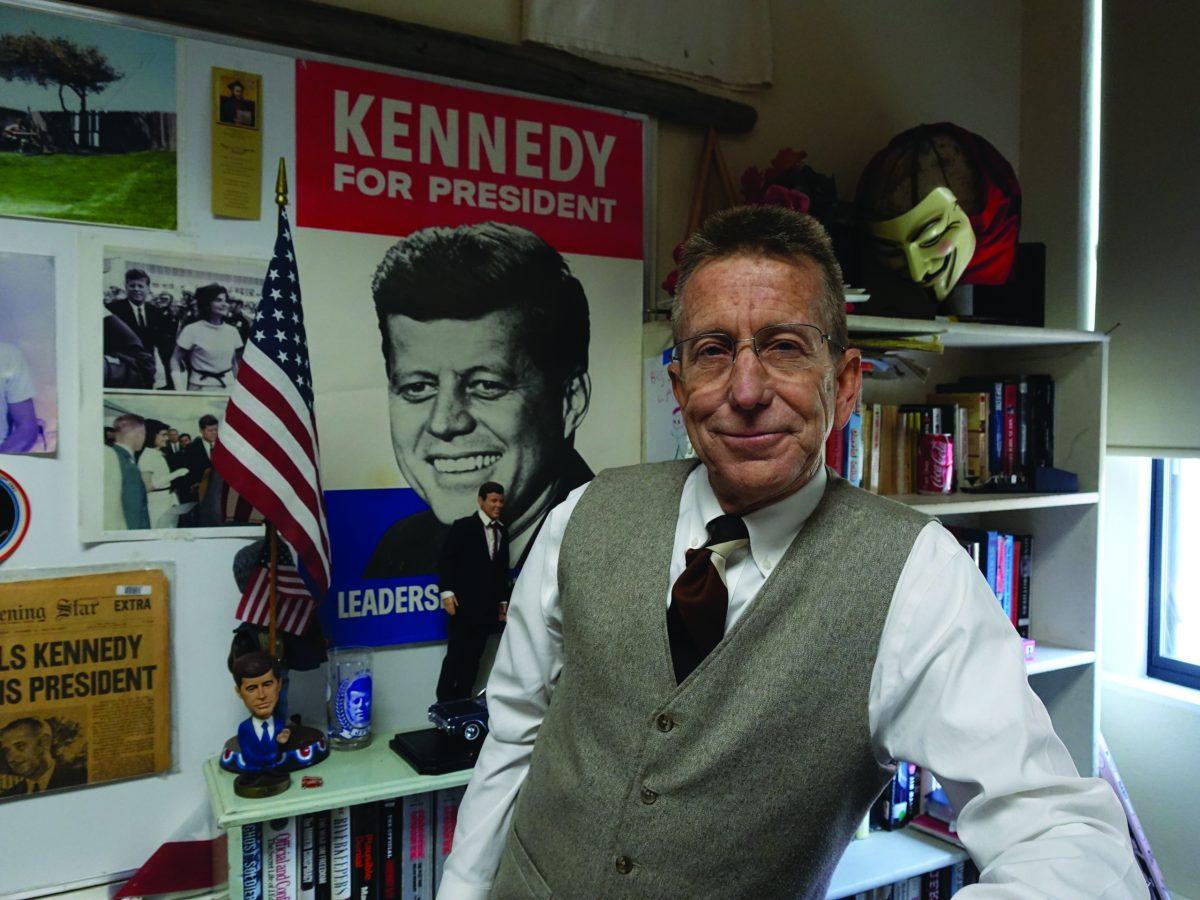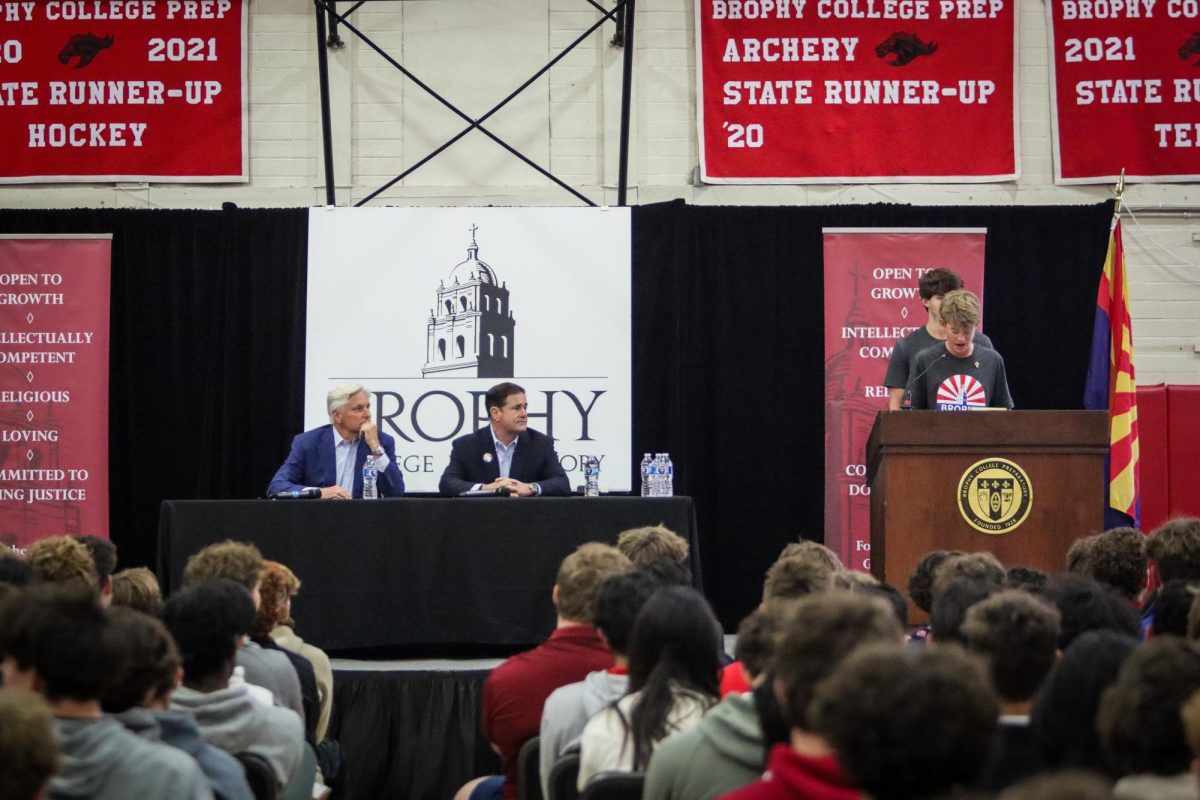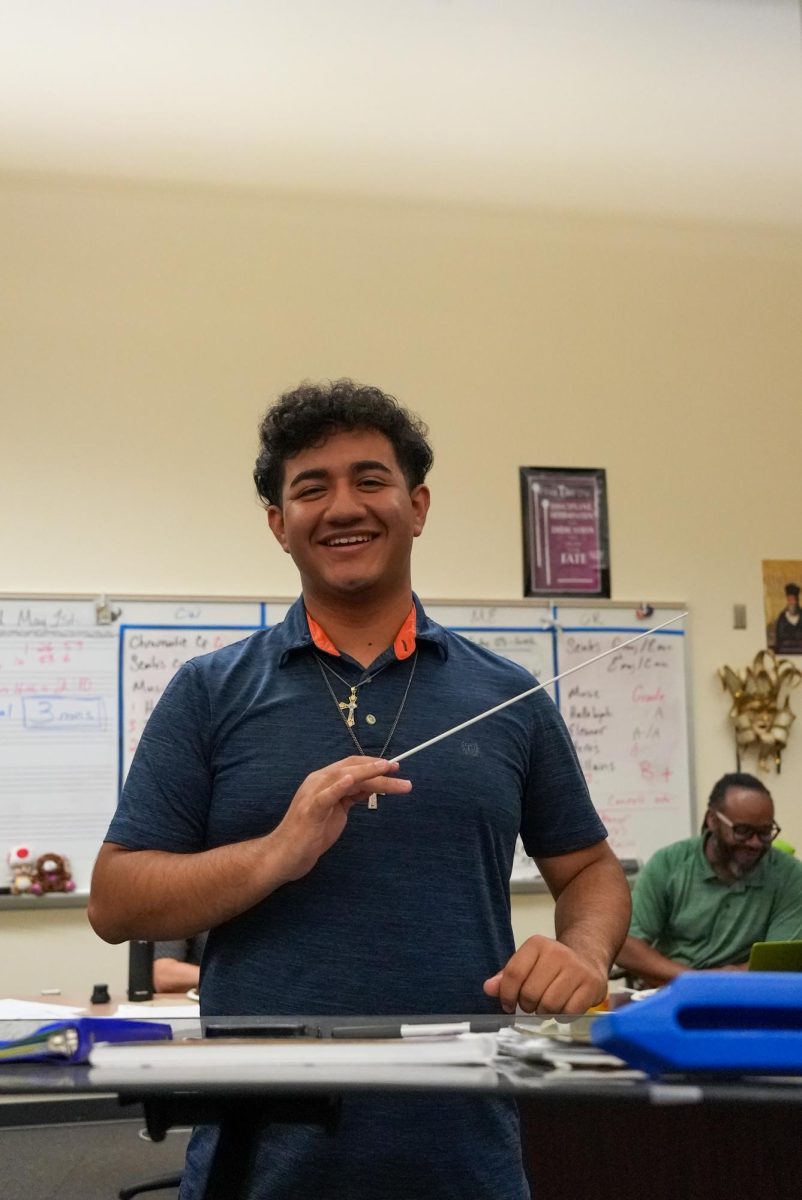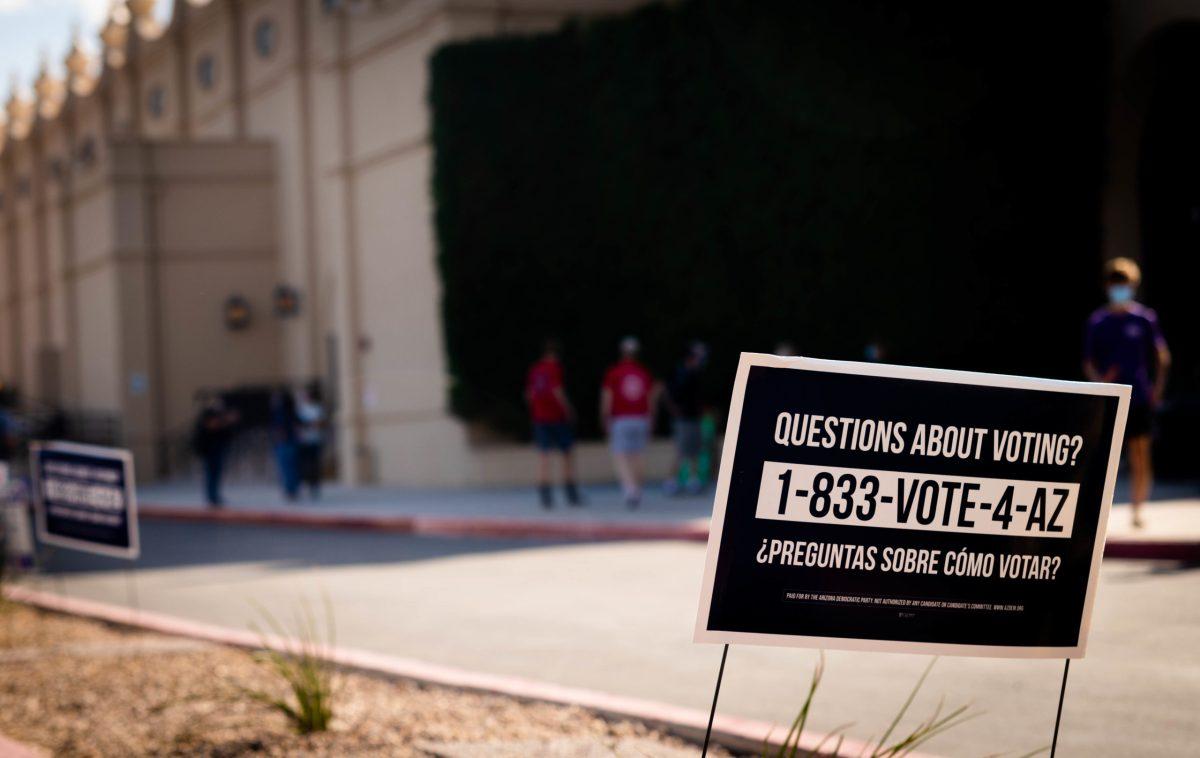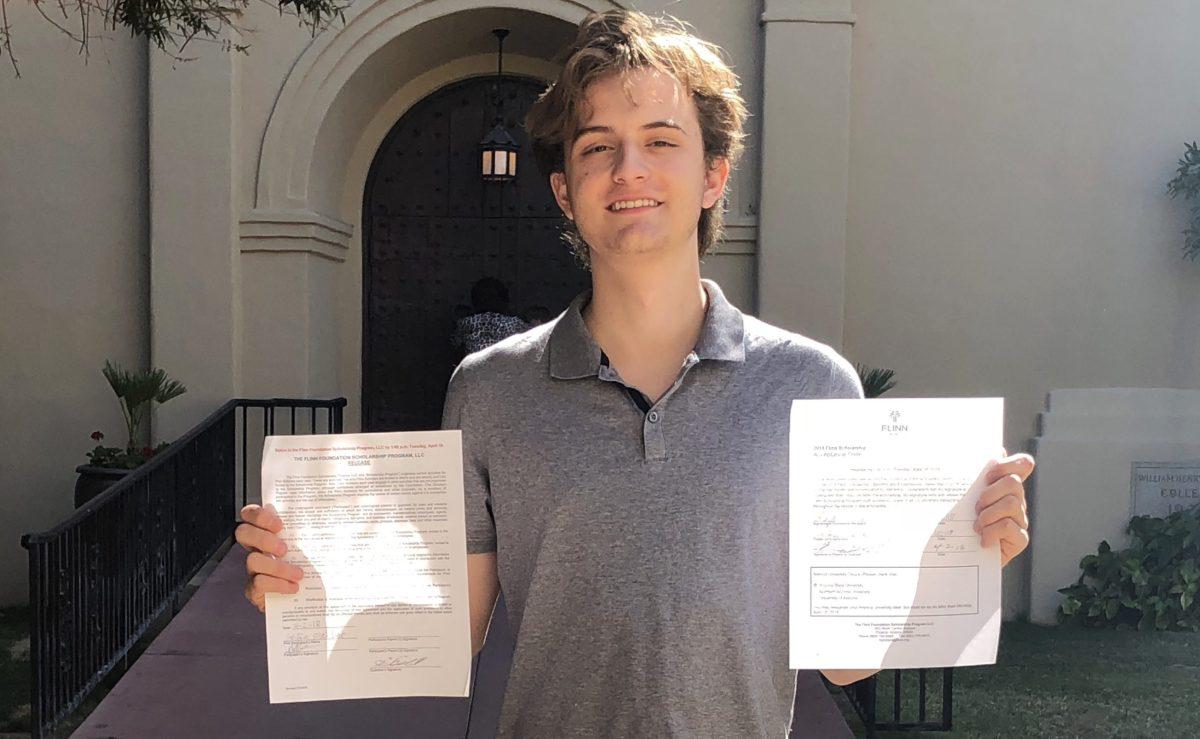Photo by Hunter Franklin ’19| English teacher and President John F. Kennedy assassination conspiracy theorist Mr. McShane poses next to his memorabilia of President Kennedy on Wednesday, Sept. 6, 2017.
By Hunter Franklin ‘19
THE ROUNDUP
“Yes, I voted for Kennedy,” recalled Father Postell S.J., a Jesuit priest who performs masses at Brophy College Preparatory, of our first Roman Catholic United States president, John F. Kennedy from the election 57 years ago.
Our first and only Catholic president who would have turned 100-years-old this year could still be an inspiration to even the modern day Brophy student.
Kennedy was all about success, lofty goals and helping the common man with words and deeds. He could easily be defined as a man for others.
“I think the Kennedy/Johnson era was really a plus for Christian values especially for the little man and the working man had his concern,” Father Postell said.
“I can’t think of any President in my lifetime who’d probably be a better role model but Kennedy,” concluded Father Postell.
In a razor-thin election win of 1960, Kennedy ended up with about 100,000 more votes than Richard M. Nixon out of over 68 million total votes.
The Electoral College was more decisive, with Kennedy taking 303 Electoral College votes to Nixon’s 219..
History has been very kind to Kennedy, the youngest president elected to the highest office in the U.S. and one of the most historically popular presidents over time.
According to White House historians (whitehouse.gov), Kennedy’s approval rating never fell below 55% and consistently held near 80% for much of his term in office.
JFK would have turned 100-years-old this year, but it’s hard to picture an aged Kennedy. Since his assassination at age 46, Kennedy remains young and handsome, with that beaming smile.
He only served as president for two-and-half years before being shot and killed by Lee Harvey Oswald.
The 35th president was always an overachiever.
A Harvard grad and a World War II Navy war hero, he won a Pulitzer Prize in history for his war autobiography “Profiles In Courage.”
Kennedy’s political `rise was steady and gradual, even though he was a household name in much of the country.
The massachusetts native spent time in the U.S. House of Representatives (1947-1953), and as a U.S. Senator (1953-1960) before being the youngest person elected president.
With his impressive resume, his faith as a Catholic nearly cost him the presidential election.
Even Kennedy addressed the issue, “I hope that no American will waste his franchise and throw away his vote by either voting for me or against me solely on the account of my religious affiliation. It is not relevant.”
“There was often a concern that he would be more answering to the Pope, of course, than the American people,” explains Mr. Lane McShane, an English teacher who has always been interested in John F. Kennedy’s history and has JFK memorabilia ranging from campaign posters to bobble heads and candles.
On election night Kennedy promised in his election victory speech to “fight for world freedom.”
According to State Department historians, Kennedy penned his early foreign policy, known as the Kennedy Doctrine, on protecting Latin America and North America from the spread of communism.
Kennedy pushed the Civil Rights movement into motion, set up programs to help the nation’s poor in the inner city and places like Appalachia, known as the New Frontier agenda.
“The presumption that the American government or American president will have any commitment to the poor is a falsehood that many Americans, particularly Catholics and Christians just seem to ignore,” Mr. McShane argues.
“Our U.S. Constitution has no real commitment to the poor. Social Security and such was started in the twentieth century and are still considered inappropriate by some business people in our country,” continued Mr. McShane.
Kennedy served to try and change that.
“He certainly solved two major international crises… by avoiding the military obvious choice,” Mr. McShane claims.
“I would boldly and clearly say that he saved some 300 to 400 million lives,” Mr. McShane added.
“He stood up to Khrushchev in the Cuban Missile Crisis, armed the country and was ready to blow Cuba and those (Russian) boats out of the water, I think he got good grades for that,” Father Postell said.
With a look of concern on his face Father Postell remembers, “I can’t tell you how nervous, at least my subconscious was during those times, about the Cold War.”
JFK would also start sending advisors to Vietnam in another growing nose-to-nose battle with communism.
All of this occurred in the very short two-and-half year administration.
But so much would be set in motion that Kennedy’s vice president Lyndon Baines Johnson would have his plate full for the remainder of Kennedy’s term and Johnson’s election in 1964.
“I think you have to look upon Kennedy’s legacy as Kennedy/Johnson legacy. Johnson had the stick to it, the political savvy to do it, he could turn screws, Kennedy was the philosopher,” explains Father Postell.
“They both needed each other,” he continues.
“Kennedy kind of dignified what Johnson did and Johnson fulfilled the dreams of Kennedy,” Father Postell said.
There are plenty of what-ifs with JFK,but his legacy is certain and his name is solidified as one of the great statesmen of the twentieth century, cut short well before his 100th birthday.
According to a recent article in The Atlantic a majority of Americans surveyed today give Kennedy the highest of grades among modern presidents.













